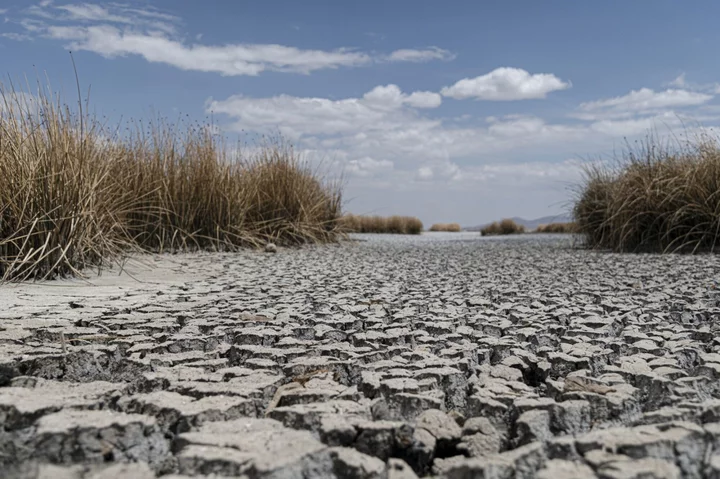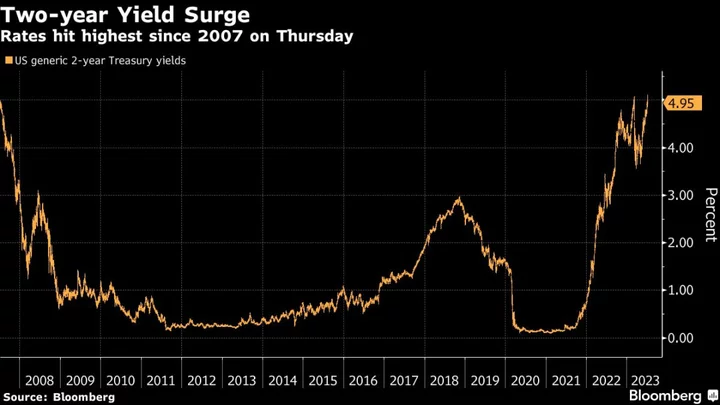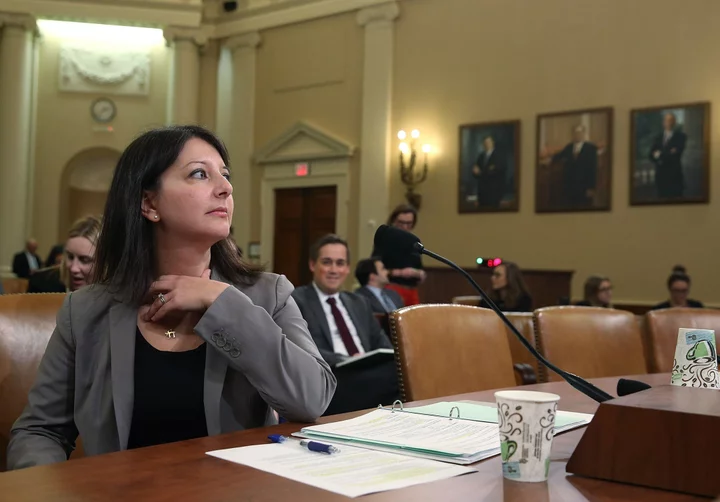The past 12 months have been the hottest on record, as 99% of the world’s population experienced above-average warmth, according to new analysis released Thursday.
Average temperatures between the start of November 2022 and through October this year were 1.32C (2.4F) above pre-industrial levels, eclipsing a previous 12-month record set during October 2015 to September 2016, analysis by the non-profit Climate Central found.
“Records will continue to fall next year, especially as the growing El Niño begins to take hold, exposing billions to unusual heat,” said Andrew Pershing, vice president for science at Climate Central. “While climate impacts are most acute in developing countries near the equator, seeing climate-fueled streaks of extreme heat in the US, India, Japan and Europe underscores that no one is safe from climate change.”
The analysis comes at the end of a period of unusually hot weather. June, July, August, September and October were each the hottest on record. This calendar year is “virtually certain” to be the warmest ever, the EU’s climate change service said earlier this week. Drought, storms, wildfires, floods and heat waves have bruised economies and led to spikes in hospitalizations around the world. Extreme weather was exacerbated by carbon-dioxide emissions from the burning of fossil fuels. The natural climate phenomenon El Niño is beginning to boost temperatures, but the strongest effects will be felt next year, the researchers said.
“This is the hottest temperature that our planet has experienced in something like 125,000 years, the hottest temperatures that humans have experienced for the time when we’ve decided to write down things, build cities and live together in large groups,” added Pershing.
Climate Central analyzed the past 12 months using its own metric, the Climate Shift Index, which uses models and data from the recent past to estimate how often a particular temperature would have occurred with and without the influence of human-caused climate change. Over the full year, 90% of people experienced at least 10 days of temperatures made at least three times more likely by climate change, the analysis found. Almost everyone — 99% of the population — experienced higher temperatures over the last 12 months, compared with averages over the previous three decades.
The past year has been an “extraordinary” one for the global climate, said Joyce Kimutai, principal meteorologist at the Kenya Meteorological Department, in a briefing for journalists. “As we continue to burn these fossil fuels, temperatures will definitely continue rising. We are seeing these impacts are continuing to accelerate and rise. It’s not just in one part of the globe. It’s really affecting every human being in this planet and it’s mostly affecting the vulnerable people.”
The climate change-induced heat was more severe between May and October this year, the research found. The longest streak of these extreme temperatures was seen in Houston, Texas, where a 22-day heat wave began at the end of July. New Orleans as well as two Indonesian cities, Jakarta and Tangerang, all experienced 17-day heat streaks.
Within the US, Hawaii experienced some of the worst physical impacts from heat stoked by the climate crisis with deadly wildfires in August. Across southwestern states, doctors cared for burn injuries from super-hot sidewalks and used ice-filled body bags to cool down patients with body temperatures of 110F. Heat waves in Europe also left healthcare systems struggling to cope. In Italy, Covid-era admission levels were seen in hospital emergency departments, the report said.
Heat has been relentless in Jamaica, Guatemala and Rwanda. On the average day over the past 12 months, citizens of those countries have experienced extreme temperatures made over four times more likely by climate change.
In February and March, exceptionally strong and long-lasting Cyclone Freddy unleashed floods, landslides and strong winds that killed over 200 people in Malawi, Mozambique and Madagascar. Climate change has made heavy rain heavier and cyclones more intense, due to increased energy from warming oceans. Overall, extreme weather has killed at least 15,700 people in Africa this year so far, and a recent drought in the Horn of Africa has left over 23 million people suffering food insecurity.
South America was significantly warmer than normal for the first half of 2023. Bolivia’s Lake Titicaca and Brazil’s Amazon river receded to record low levels. A prolonged two-year drought in Central America has led to restrictions limiting ships’ maximum depth and the number of vessels that can pass through the Panama Canal, which supports around 5% of global maritime trade.









